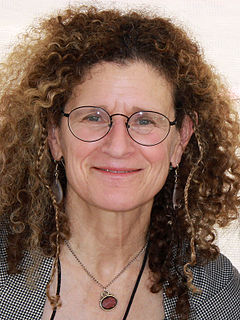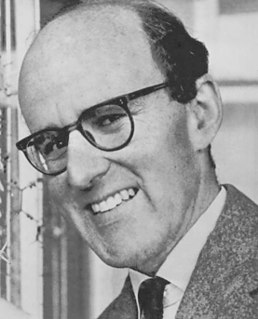Top 1200 Dining Room Quotes & Sayings - Page 17
Explore popular Dining Room quotes.
Last updated on November 19, 2024.
Meanwhile, as we read, two little girls slept as if couched on zephyrs on the south side of the parlor floor, in a room that had bunny wallpaper...and a bookcase crammed with the collected Beatrix Potter. Snow White was in a youth bed and Rose Red was in a crib, and next to them was the little blue and white guest room that one of them would have one day. Because I recognize emotions only in retrospect, I didn't know that I was happy. As always, there was something nagging at my mind's corners. But I did know that I had all that it is proper in this world to wish for.
Yes sir. You can be more careless, you can put more trash in [a novel] and be excused for it. In a short story that's next to the poem, almost every word has got to be almost exactly right. In the novel you can be careless but in the short story you can't. I mean by that the good short stories like Chekhov wrote. That's why I rate that second - it's because it demands a nearer absolute exactitude. You have less room to be slovenly and careless. There's less room in it for trash.
Visiting someone in a hospital recently, I watched an elderly couple. The man was in a wheelchair, the wife sitting next to him in the visitors' room. For the half-hour that I watched they never exchanged a word, just held hands and looked at each other, and once or twice the man patted his wife's face. The feeling of love was so thick in that room that I felt I was sharing in their communion and was shaken all day by their pain, their love, something sad and also joyful: the fullness of a human relationship.
She looked at him then, but his image blurred behind tears that swelled into her eyes. She must leave. She must leave this room, because she wanted to hit him, as she had sworn she never would do. She wanted to cause him pain for taking a place in her heart that she wouldn't have given him if she'd known the truth. "You lied to me," she said. She turned and ran from the room.
Lost opportunities, lost possibilities, feelings we can never get back. That's part of what it means to be alive. But inside our heads - at least that's where I imagine it - there's a little room where we store those memories. A room like the stacks in this library. And to understand the workings of our own heart we have to keep on making new reference cards. We have to dust things off every once in awhile, let in fresh air, change the water in the flower vases. In other words, you'll live forever in your own private library.
We should, I believe, beware of the pitfalls described by Taine: 'Imagine a man who sets out on a voyage equipped with a pair of spectacles that magnify things to an extraordinary degree. A hair on his hand, a spot on the tablecloth, the shifting fold of a coat, all will attract his attention; at this rate, he will not go far, he will spend his day taking six steps and will never get out of his room.' We have to get out of this room.
All three parts of filmmaking [writing, shooting, editing] contribute to rhytm. You want the script to be a tight as possible, you want the acting to be as efficient as possible on the set, and you have enough coverage to manipulate the rhythm in the editing room, and then in the editing room you want to find the quickest possible version, even if it's a leisurely paced film. I definitely in filmmaking more and more find writing and directing a means to harvest material for editing. It's all about editing.
God is resplendently reflected in the souls of His chosen ones, and these pure souls, these images of God, like the transparent glass, shine forth like gold in the sun, like diamonds of the purest water, but they shine for God and the angels, not revealing their brightness to men, although at times, by God's ordering, they do shine even for them, by the light of their faith, their virtues, when necessary, similar to a candle put on a candlestick in a room, and lighting the room with all those who are in it. (cf. Mt. 5:15).
Never far from a dining table, the characters in Heather A. Slomski's limpid and elegant debut collection are not given to melodramatics. Civility reigns, voices are not raised, much goes unsaid. But just beneath the sophisticated composure are longing, loss, heartbreak. And how intensely familiar is the table itself, which made this reader suddenly understand how much of our real life takes place there. Heather A. Slomski is truly a fresh voice on the scene, and The Lovers Set Down Their Spoons is that rare thing, a new book as innovative in its design as it is compulsively readable.
People ask why I do monochromatic clothes; the reason is because I'm thinking in proportion to the world. In this room, your head is going to look so much more interesting if it's on a monochromatic column. Whereas I think people think of outfits and gets a little too fussy, a little too detailed. I'm always thinking of the line of a person standing with their head in a room and I always feel like a stalk, or a stem, or a pillar is nicer. I always think of everything architecturally.
Dammit, Michael, get out of my room, you pervert!” Could you even be a pervert if you were dead? She supposed you could, if you had a working body half the time. “I swear, I’m going to start taking my clothes off!” The cold spot stayed resolutely put until she got the hem of her T-shirt all the way up to her bra line, and then faded away. “Chicken,” she said, and paced the room, back and forth.
Sometimes I need silence; sometimes I need voices around - but not too loud or distinctive. I guess it depends on the piece in question, what stage I'm in. I think some voices can help me not to try too hard - especially at the beginning stages. Does that make sense? By some voice I mean, low chatter in the room. When there's low chatter in the room, I'm a little more relaxed, my mind might be a little more open.
The superpowers often behave like two heavily armed blind men feeling their way around a room, each believing himself in mortal peril from the other, whom he assumes to have perfect vision. Each side should know that frequently uncertainty, compromise, and incoherence are the essence of policymaking. Yet each tends to ascribe to the other a consistency, foresight, and coherence that its own experience belies. Of course, over time, even two armed blind men can do enormous damage to each other, not to speak of the room.
Performance is made in the editing room, and I've come to see the truth in that - the idea that they say performances are usually made in the editing room because what you film is the raw material. I think just going through the process of saying, "Which take do we use? Why is that the take we want? I want that take can you edit again, I'm not sure that's the one, I think it's this one." And just because you go through that process, I think somehow it's made me sort of more open about the [actor's] possibilities.
Now the dressing-room full of RSC hierarchy. Suddenly Trevor Nunn pushes his way through and 'Trevs' me. I've heard a lot about this 'Trevving', but never had it done to me. From what I'd heard, a 'Trev' is an arm round your shoulder and a sideways squeeze. But this 'Trev' is a full frontal hug, so complete and so intimate that the dressing-room instantly clears, as if by suction. I'm left alone in the arms of this famous man wondering whether it's polite to let go.
You see, Greg, my mother is going through a feline phase. Blinky is a Persian,' Hale said simply, as if that should explain everything. 'Binky has a nasty habit of shedding all over the living room furniture, you see.' Gregory Wainwright nodded as if he understood perfectly. 'And so we had to get new living room furniture, which, unfortunately, does not go with the Monet.' Kat stood there for a moment, staring into that small window of the world where someone would tire of a Monet simply because it clashed with the couch.
I never went to school for that. In high school we had photography, which was great. That was another moment of discovery. I had a great teacher - I can't even remember her name now. I ended up going to boarding school for my last high school years and they had a dark room there. Of course there was curfew; you were supposed to be in bed at a certain time. But I would sneak out and sneak into the dark room and work all night.
Contrary to popular belief, prosperity is an emotional state that has little to do with your wealth or the state of the economy. You can feel more prosperous in a one-room cottage than most wealthy people feel in a twenty-room mansion. Misers will hoard a lot of money and spendthrifts will spend whatever they have - you don't have to do either to feel prosperous. You may have to give up your secure, high-paying corporate job, however - and grow spiritually in the process.
But this is predicated upon the man's becoming in very fact an American and nothing but an American. If he tries to keep segregated with men of his own origin and separated from the rest of America, then he isn't doing his part as an American. There can be no divided allegiance here. . . We have room for but one language here, and that is the English language, for we intend to see that the crucible turns our people out as Americans, of American nationality, and not as dwellers in a polyglot boarding-house; and we have room for but one soul loyalty, and that is loyalty to the American people.
We [Cleveland Browns] are from the same segments of America that everyone else is from. We have the same diversity, the same mix, so we don't run away from issues amongst each other, because we're brothers and we have to build that bond because we're always on the quest to be world champions. That's always our quest, and if you don't have that bond, it's not going to happen. So I guess every locker room is different, but our locker room I think is more than fine.
Every person has the power to make others happy. Some do it simply by entering a room others by leaving the room. Some individuals leave trails of gloom; others, trails of joy. Some leave trails of hate and bitterness; others, trails of love and harmony. Some leave trails of cynicism and pessimism; others trails of faith and optimism. Some leave trails of criticism and resignation; others trails of gratitude and hope. What kind of trails do you leave?
The Internet causes billions of images to appear on millions of computer monitors around the planet. From this galaxy of sight and sound will the face of Christ emerge and the voice of Christ be heard? For it is only when his face is seen and his voice heard that the world will know the glad tidings of our redemption. This is the purpose of evangelization. And this is what will make the Internet a genuinely human space, for if there is no room for Christ, there is no room for man.
I asked a girl who came from America to England, when I was only English, and she admitted she had been to a drama school. And I said, "What did they teach you?" And she said, "They taught me to be a candle burning in an empty room." I'm happy to say she was laughing while she said it, but she meant it. I've never learned to be a candle burning in an empty room. So I go on the screen, and I say whatever I'm told to say.
The first thing I did when I got inside was turn on the kitchen light. Then I moved to the table, putting my dad's iPod on the speaker dock, and a Bob Dylan song came on, the notes familiar. I went into the living room, hitting the switch there, then down the hallway to my room, where I did the same. It was amazing what a little noise and brightness could do to a house and a life, how much the smallest bit of each could change everything. After all these years of just passing through, I was beginning to finally feel at home.
In the middle of a garden grew a rose tree; it was full of roses, and in the loveliest of them all lived an elf. He was so tiny that no human eye could see him. He had a snug little room behind every petal of the rose. He was as well made and as perfect as any human child, and he had wings reaching from his shoulders to his feet. Oh, what a delicious scent there was in his room, and how lovely and transparent the walls were, for they were palest pink, rose petals.
King Duncan looked up and swept his gaze slowly around the room. Cassandra, he saw, was defiant as ever. Arald's face was set and determined. Halt and Crowley's faces were inscrutable in the shadows of their cowls. The two younger men were both a little wide-eyed- obviously uncomfortable at the emotions that had been bared in the room. There was still a hint of admiration in Will's eyes, however, as he continued to stare at the Baron. Rodney was nodding in agreement with Arald's statements, while Gilan made a show of studying his nails.
In churches, we see that getting people to show up for a prayer meeting is a lot more difficult than a concert or service project or just about anything else. So we were thinking, we're stepping into some unknown territory here that could be as profitable, or it could be a box-office flop, but there was a rightness about it. And so this whole idea of the war room being like a spiritual warfare room, a place of prayer where you get alone with God and you're making your decisions and you're dealing with your issues first in prayer.
Marriage is a very strange thing. It's a very public institution, it's meant to tell the world that two people are going to live together, to declare that their children will be legal, that these children can inherit their property. It's meant for social living, to ensure that some rules are observed, so that men and women don't cross the lines drawn from them. At the same time, marriage is an intensely private affair, no outsider will know the state of some one else's marriage. It's a closed room, a locked room...
A work in progress quickly becomes feral. It reverts to a wild state overnight. It is barely domesticated, a mustang on which you one day fastened a halter, but which now you cannot catch. It is a lion you cage in your study. As the work grows, it gets harder to control; it is a lion growing in strength. You must visit it every day and reassert your mastery over it. If you skip a day, you are, quite rightly, afraid to open the door to its room. You enter its room with bravura, holding a chair at the thing and shouting, "Simba!
Chiron, I don't think the attic is the proper place for our new Oracle, do you?" "No, indeed." Chiron looked a lot better now that Apollo had worked some medical magic on him. "Rachel may use a guest room in the Big House for now, until we give the matter more thought." "I'm thinking a cave in the hills," Apollo mused. "With torches and a big purple curtain over the entrance . . . really mysterious. But inside, a totally decked-out pad with a game room and one of those home theater systems.
We may live without poetry, music and art; We may live without conscience, and live without heart; We may live without friends; we may live without books; But civilized man cannot live without cooks. . . . He may live without books,-what is knowledge but grieving? He may live without hope,-what is hope but deceiving? He may live without love,-what is passion but pining? But where is the man that can live without dining?
I just think, realistically, there's a lot of room outside the Trump populist right and the Bernie-Sanders-Elizabeth-Warren populist left. There are a lot of us who believe in open trade, open borders, a dynamic forward-looking economy, not a nostalgic economy, but do want to provide a significant level of social service or sort of economic Milton Friedman foreign policy, Ronald Reagan domestic policy, Franklin Roosevelt. And there's a lot of room in the center.
I trust microphones, speakers and recordings less and less, and no longer buy into the idea that I can recreate at home, or in my earphones, the experience of hearing live acoustic instruments. The orchestra is already a set of speakers that react differently to each player, each room and each concert - it's that high level of uncertainly and unrepeatability that I like. The music is just soaked into the walls of a room straight from the instruments - and it's a one-off deal. The alternative - left speaker, right speaker - is kind of a compromise.
In general, I think there are some things that require time before you can talk about them. Some stuff that happened over the summer, for instance - the Philando Castile shooting, Alton Sterling, the police officers in Dallas - there was no room for jokes. But there are, of course, the policies that have given us those events. Now, there's a lot of room for jokes there. When you're looking at something difficult to talk about, there's always a sideways way in that feels a little less personal to people. That's where the joke lives.
One response was given by the innkeeper when Mary and Joseph wanted to find a room where the Child could be born. The innkeeper was not hostile; he was not opposed to them, but his inn was crowded; his hands were full; his mind was preoccupied. This is the answer that millions are giving today. Like a Bethlehem innkeeper, they cannot find room for Christ. All the accommodations in their hearts are already taken up by other crowding interests. Their response is not atheism. It is not defiance. It is preoccupation and the feeling of being able to get on reasonably well without Christianity.
Scientists like myself merely use their gifts to show up that which already exists, and we look small compared to the artists who create works of beauty out of themselves. If a good fairy came and offered me back my youth, asking me which gifts I would rather have, those to make visible a thing which exists but which no man has ever seen before, or the genius needed to create, in a style of architecture never imagined before, the great Town Hall in which we are dining tonight, I might be tempted to choose the latter.
But love, honest love, requires empathy. It is a sharing—of joy, of pain, of laughter, and of tears. Honest love makes one’s soul a reflection of the partner’s moods. And as a room seems larger when it is lined with mirrors, so do the joys become amplified. And as the individual items within the mirrored room seem less acute, so does pain diminish and fade, stretched thin by the sharing. That is the beauty of love, whether in passion or friendship. A sharing that multiplies the joys and thins the pains.
The more Lord Maccon considered it, the more he grew to like the idea. Certainly his imagination was full of pictures of what he and Alexia might do together once he got her home in a properly wedded state, but now those lusty images were mixing with others: waking up next to her, seeing her across the dining table, discussing science and politics, having her advice on points of pack controversy and BUR difficulties. No doubt she would be useful in verbal frays and social machinations, as long as she was on his side.
I actually take images of things and put them up around the wall and in a room. I set a room aside. It might be colors, it might be animals, or energy and words. And I'll just leave it there, so it begins to work on my subconscious when I think about the character. Which gives me some latitude to be really flexible and spontaneous but within the context of the character and the world of the character without having to think about it. Or I'll look at something or read something and let it work on my subconscious mind.
My favorite thing about acting is you have to learn how to work with people that you probably would never try to. Some people just aren't supposed to be in a room together, and you have to be in a room with a group of people who might not all get along and you have to figure out how to come together for one thing. That collaboration is special, and people don't get to exercise that. I think that's why people become stubborn, and I think that's why people become uninspired to change. In this job you have to.
God will not accept a divided heart. He must be absolute monarch. There is not room in your heart for two thrones. You cannot mix the worship of the true God with the worship of any other god more than you can mix oil and water. It cannot be done. There is not room for any other throne in the heart if Christ is there. If worldliness should come in, godliness would go out.
Every time the tour guide told a story, he would build it up to the point where he'd say, "And there was Bloody Joe, and his young ghost son walked into the room." He would build it up, and then it was just "the ghost walked into the room." And he would say, "Let's move on," and that would be it. It's like, wait, what happened to the bloody ghost? That's it? We knew he was making some of it up.
Never open your story with a character thinking, I advise my students. As a further precaution, don’t put a character in a room alone – create a friend, a bystander, a genie, for God’s sake, any sentient creature with whom your main character can converse, perhaps argue or, better yet, engage in some action. If a person is out and doing, it’s more likely that something interesting might happen to her or him. Shut up in a room with only his thoughts for company well, that way lies fictional disaster.



























































